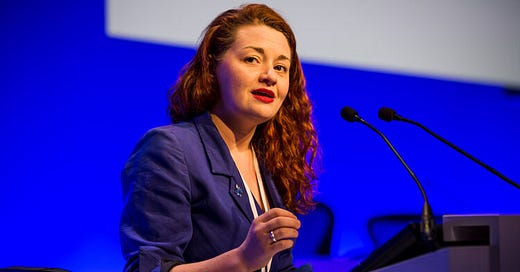Dr Hannah Barham-Brown on campaigning, disabled doctoring, and medical ableism
In the run up to my book launching in September, I am running a series of interviews with fabulous disabled women. Today: the fantastic Hannah on what it's like to be a disabled GP
Hello,
Let’s start with some exciting news: my book has a publication date! The View From Down Here: Life as a young disabled woman will be in all good bookshops (I hope) on 7 September 2023. I’ll let you know as soon as I can when pre-orders open!
The book, being a memoir, is incredibly personal. But I am not the only person who experiences life at the i…
Keep reading with a 7-day free trial
Subscribe to The View From Down Here to keep reading this post and get 7 days of free access to the full post archives.


